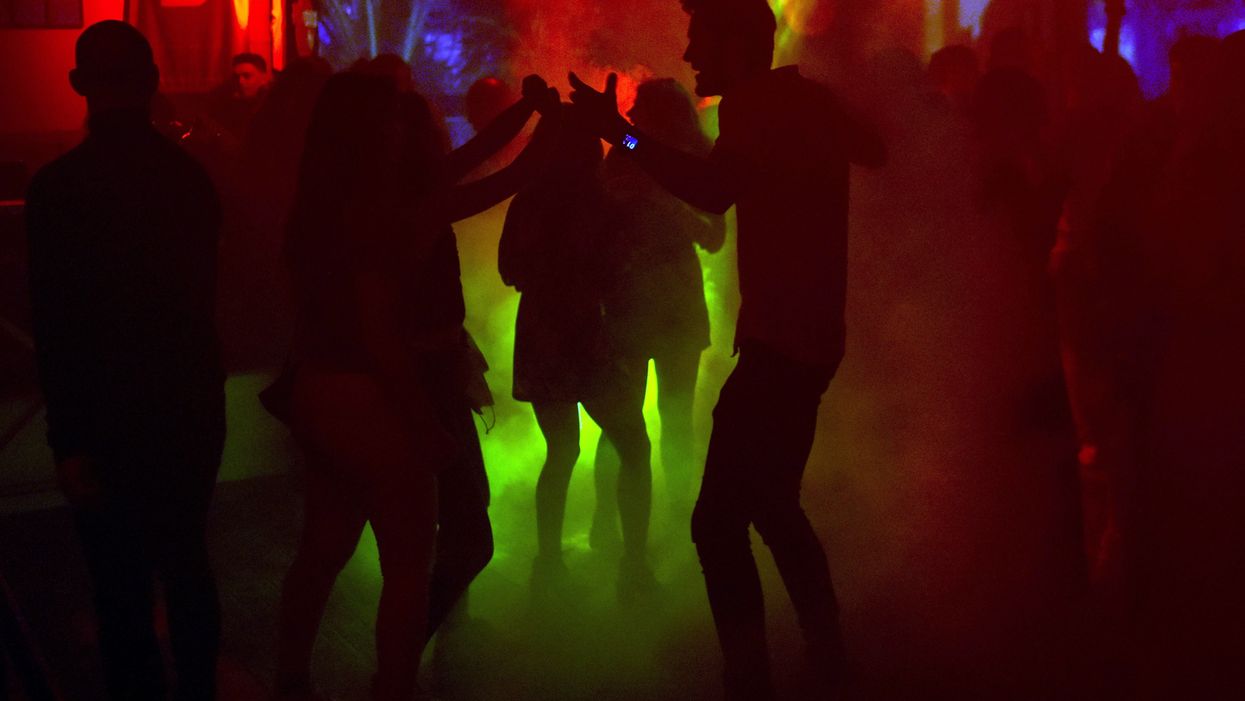Elaine McCallig
Oct 20, 2021
A boycott of nightclubs in over 30 UK towns and cities will take place next week to raise awareness for spiking, an issue that has reached “epidemic” levels according to activists.
The nationwide movement, Girls Night In, began following several reports of women being injected with needles while on nights out in recent weeks.
Police across the country are investigating reports of students being spiked with needles in nightclubs. Reports have been recorded in Nottinghamshire, West Yorkshire, Edinburgh, Dundee, and Glasgow.
Boycotts are organised across major cities in the UK next week, including London, Nottingham, Liverpool, Manchester, Cardiff, Edinburgh, and Belfast.
A petition calling for mandatory searches in nightclubs has also received over 130,000 signatures in the last number of days.
Ellie O’Sullivan, 24, started the Girls Night In London Instagram page along with her sister Ruby, 20. Ruby’s twin Milly is studying to become a primary school teacher at the University of Chichester, where there is also a Girls Night In protest planned.
Sign up to our new free Indy100 weekly newsletter
As the reports of spiking mainly seem to concern students, the Essex sisters wanted to do their part to raise awareness for the issue in the capital.
Ellie told indy100: “I have a sister at university and with everything going on in the news with Sarah Everard and Sabina Nessa, women being targeted is really coming to light. I feel passionate about it, so I wanted to raise awareness and make the boycott spread to London as well.”
Ellie, a recruitment consultant, said the response has been overwhelming, and since setting up the page yesterday she has gained over a thousand followers.
“I’ve had so many shares and so many direct messages - I couldn’t even begin to count them. The response has been great and I think it’s clear that the girls who set up the Instagram pages aren’t the only ones who feel so strongly about this.
“It’s not just women who are targeted on nights out, there are men who have been spiked too, although it’s more common with women. It is an epidemic on nights out.”
Other men who have responded have asked what they can do better, and have reached out to learn more about how they can add their voices to the chorus of protest.
Although the experience of being spiked in and of itself is terrifying, Ellie said “it’s the reason someone is spiking you that is even scarier.”
“I’m so surprised by how many women know someone, or is someone, who has faced this problem,” she said. “I’m so lucky myself that I’ve never actually experienced being spiked, but it is so overwhelming how many people have. It’s just really scary and again, with everything going on in the news you’re not really safe anywhere and that is the problem.”
She added: “I’ve seen some great businesses with lids for cups, but it’s sad that even needs to be created. There are injections now to spike people and it’s crazy, it seems to be getting worse and worse. Just seeing the stories makes it more real because it’s real people.”
In the future, Ellie hopes to see increased awareness amongst club owners and bar staff on how to tackle the issue of spiking, and how to recognise the signs that someone has been spiked.
Organisers of the Liverpool, Sheffield, Cardiff, Birmingham, York, Warwick, Belfast, Stirling, and Southampton boycotts have changed their Instagram names to be more inclusive, dropping the ‘girls’ from the ‘Night In’ title of the protest.
In a statement on Instagram, the Liverpool team wrote that their name changed as they wanted to show that the movement is intersectional.
Speaking to BBC Breakfast this morning, Nottingham University student Zara Owen said she suffered a “blackout” that she suspects was due to being pricked with a needle last Monday night.
The 19-year-old said it was unusual for her to have no memory of a night out, and said she woke up with a painful leg the following morning. She discovered a pinprick on her leg, and said she was unable to walk and was “limping around” as she was in “agony”.
“I have a full black out of memory” Police are investigating a number of reports from women who say they have been… https://t.co/kPhgbgKXXM— BBC Breakfast (@BBC Breakfast) 1634711474
Police in Nottinghamshire are investigating several reports of students’ drinks being spiked, including “a small number of victims” who reported feeling “a scratching sensation” as though they were spiked physically.
Further north, West Yorkshire police are making enquiries into a “spiking by injection” incident that allegedly occurred in Leeds city centre last Wednesday.
Scottish police are also investigating similar reports in Edinburgh, Stirling, Dundee and Glasgow.
A petition calling for the government to make thorough searches at the doors of nightclubs a legal requirement has received tens of thousands of signatures in the last 24 hours. As the petition has received more than 100,000 signatures, parliament will consider the topic for debate.
Another petition, which has over 8,000 signatures, calls for free drink spiking test kits to be made available at all bars. Such kits would allow those who suspect someone may have interfered with their drink to get an instant result and react accordingly.
To find out when the boycott is happening in your nearest city, click here.
Top 100
The Conversation (0)














